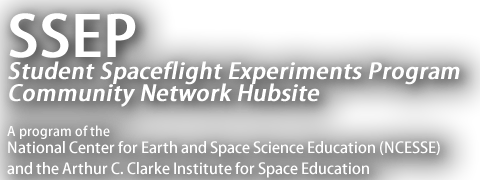This page provides a video archive of presentations at the annual SSEP National Conference by student researchers whose experiments were part of the SSEP Mission 16 to ISS Ranger experiments payload. Mission 16 to ISS was the eighteenth SSEP flight opportunity.
Ranger launched on SpaceX-26, on November 26, 2022, from NASA Kennedy Space Center, FL. Ranger returned to Earth on SpaceX-26, splashing down in the Gulf of Mexico off the west coast of Florida on January 11, 2023.
For details on the flight profile for Ranger, see the SSEP Mission 16 to the International Space Station (ISS) page.
Some student flight teams present at more than one annual conference, reporting out status at various stages of the life cycle of a flight experiment. It is also true that not all student flight teams attend a conference. For details on all Ranger flight experiments, see the Selected Experiments on SSEP Mission 16 to ISS page.
Hillsborough County, Florida
Title: The Effects of Microgravity on the Bio-electrolysis of Anabaena sp. PCC 7120Oral Presentation, 10th Annual SSEP National Conference, July 2024
Walker Middle School, Hillsborough County Public Schools
Grade level: 8
Type of Experiment: Flight Experiment, Mission 16
Co-Principal Investigators: Brad Beenhakker, Henry Bravo, Rehan Dost, Samuel Fernandez, Rohan Halarnkar, Luke Oldenburg
Teacher Facilitator: Jodie Dukes
Abstract: The investigation aims to determine whether microgravity affects the microbial electrolysis of Anabaena Sp. PCC 7120. The Type 2 FME Mini-lab contains cyanobacteria with carbon paper which serves as a catalyst. The applications for this investigation include supplying the upper stages of interstellar spacecraft with rocket fuel at an accelerated rate compared to Earth or an alternative way of providing oxygen to astronauts on the ISS.
